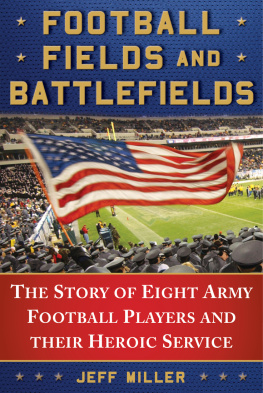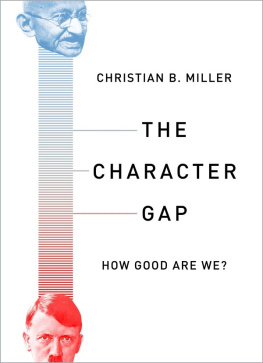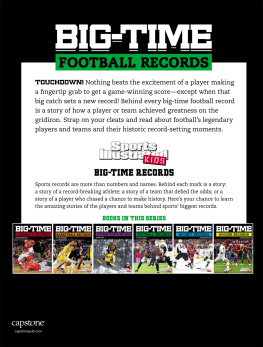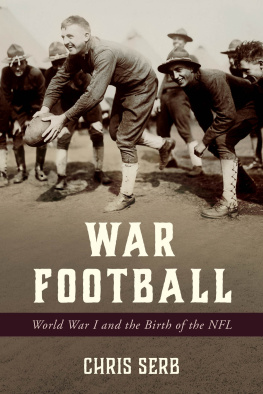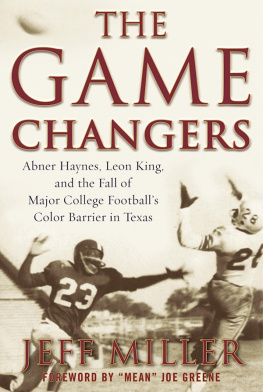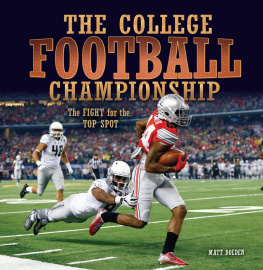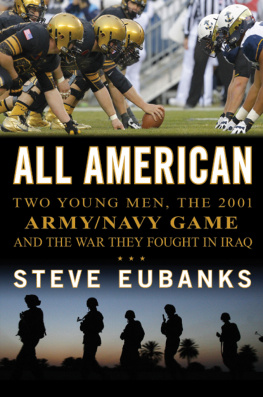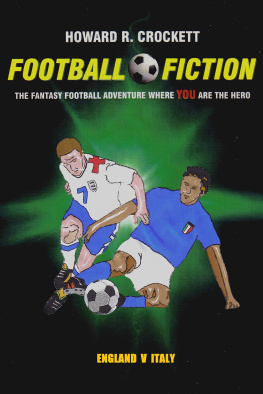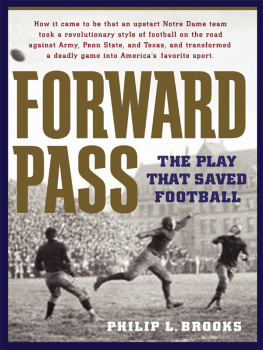


Copyright 2018 by Jeff Miller
All rights reserved. No part of this book may be reproduced in any manner without the express written consent of the publisher, except in the case of brief excerpts in critical reviews or articles. All inquiries should be addressed to Skyhorse Publishing, 307 West 36th Street, 11th Floor, New York, NY 10018.
Skyhorse Publishing books may be purchased in bulk at special discounts for sales promotion, corporate gifts, fund-raising, or educational purposes. Special editions can also be created to specifications. For details, contact the Special Sales Department, Skyhorse Publishing, 307 West 36th Street, 11th Floor, New York, NY 10018 or .
Skyhorse and Skyhorse Publishing are registered trademarks of Skyhorse Publishing, Inc., a Delaware corporation.
Visit our website at www.skyhorsepublishing.com .
10 9 8 7 6 5 4 3 2 1
Library of Congress Cataloging-in-Publication Data is available on file.
Cover design by Tom Lau
Cover and spine photo credit: AP Images
Print ISBN: 978-1-5107-3041-0
Ebook ISBN: 978-1-5107-3042-7
Printed in the United States of America
Physical qualities may well determine the destiny of the intellect. To emphasize these truths I had carved on the stone portals of the gymnasium these words:
Upon the fields of friendly strife
Are sown the seeds
That, upon other fields, on other days
Will bear the fruits of victory
Douglas MacArthur, United States Military Academy Class of 1903, academy superintendent 19191922
TABLE OF CONTENTS
Introduction
SINGING FIRST
While the cadets of the United States Military Academy at West Point and the midshipmen of the United States Naval Academy at Annapolis continued to huddle together and shiver in their respective corners of Lincoln Financial Fields lower bowl, many of the announced gathering of 70,844 whod come to south Philadelphia for the 104th chapter of the storied college football rivalry between Army and Navy on the first Saturday of December 2003 had long since fled the premises as the games final seconds ticked down. Navys starting quarterback, Craig Candeto, had ceded custody of his helmet to some member of the teams equipment staff a few series earlier. The Midshipmens No. 2 quarterback, Aaron Polanco, had even completed a cameo appearance under center and since given way to third-stringer Lamar Owens. The Middies approached the line of scrimmage for 3rd down and 4 yards to go at their 49-yard line. Owens took the snap, faked an inside handoff, and broke toward the left side of his offensive line. Army linebacker Tom Farrington sniffed out the play early. A reserve throughout his four years on the team who most often played on special teams, Farrington took off in hot pursuit of Owens, came through Navys line essentially untouched, and lunged at him with both hands. His right hand managed to barely clip Owenss right ankle, bringing down the Navy quarterback one yard short of the first down.
A first down would have stopped the game clock by college rulesat least until the first-down chains along the sideline could be reset. With neither coaching staff interested in using any of its remaining timeouts, the final seconds ticked away. Navy won, 346, for an outcome that was widely expected. The Midshipmen were favored by 22.5 points according to the betting line established in Las Vegas. For Armys Black Knights, the 28-point defeat was actually a mathematical improvement; their 5812 loss to Navy a year earlier was the most lopsided in series history. The 03 Middies finished their regular season with an 84 recordtheir first winning season since 1997and were bound for their first postseason bowl since 1996. More important to the legion of Naval Academy grads, Navy had won the triangular gridiron competition with Army and Air Force for the first time since 1981. The Commander-in-Chiefs Trophy would finally return to Annapolis, Maryland.
Losing was all too familiar to Armys players. They lost every game that they played that season, all 13 of them. The vast majority of college football teams that play in the NCAAs top classificationknown now as the Football Bowl Subdivision (FBS) but called Division I-A in 2003have played a maximum of 12 regular-season games beginning with the 2002 season. West Point played 13 games in 2003 through a scheduling anomaly. That allowed Army to become the first team in the long history of major college football to finish 013.
Navys victorious head coach, Paul Johnson, left the sideline soon after receiving a chilled shower courtesy of Candeto and two teammates, who dumped a half-full cooler of ice water on him, per the custom whose roots trace to the National Football Leagues 1984 New York Giants. Johnson began his soaked saunter toward midfield, seeking to engage in a football tradition thats much older than the sideline showerexchanging a handshake, and possibly pleasantries, with the opposing coach. Johnson had walked no more than a handful of steps off Navys sideline when he was first greeted by someone associated with Army football and offered congratulations. That was Ryan Kent, a senior sniper (Armys vernacular for an outside linebacker then) and three-year starter who played his high school football only a few minutes from Philadelphia in the small New Jersey town of Woodbury.
Tradition, at least for Army-Navy football, also called for the competitors to stand in front of their respective student bodies and sing the two alma maters. The losing team always goes first; hence, singing second is a year-long goal for both squads. The football playing members of West Points Class of 2004, seniors that day in Philadelphia, enjoyed the pleasure of singing second after the Navy game only once. That happened when they were sophomores, following Armys 2617 victory in 2001 just up South 11th Street in Lincoln Financial Fields predecessor, Veterans Stadium.
As more frigid fans left The Linc, Army players gathered in front of the Corps of Cadets, seated in the stadiums northwest seats. And they didnt simply crowd around the stadium wall like impatient shoppers on Black Friday. They lined up in formal rows, standing at attention. The nearby West Point marching band began to play, and the playerssome with tears in their eyesbegan to sing. The final lines:
Eer may that line of gray Increase from day to day Live , serve , and die , we pray , West Point , for thee.
The alma mater reflects West Points three-word motto: Duty, honor, and country. Those hallowed words reverently dictate what you ought to be, what you can be, General Douglas MacArthur told the cadets in May 1962sixty-three years after he had initially arrived there as a wide-eyed freshman from Wisconsinwhen accepting the Thayer Award for lifetime service to the academy. They are your rallying point to build courage when courage seems to fail, to regain faith when there seems to be little cause for faith, to create hope when hope becomes forlorn.
Kent, Farrington, and all of the Army football players then crossed the field and stood behind the exultant Navy players, who sang second. The Black Knights then made their way to their locker roomas the days designated home team, they occupied the quarters normally held by the Temple Owlsleft to ponder a season that they had approached with enthusiasm and promise. Farrington and Kent were two of the eight fourth-year seniorsor firsties in West Point parlancewho played that day for Army. The Navy roster, in contrast, featured fifteen seniors. Only three of Armys seniors started on offense or defenseKent (outside linebacker), Brian Hill (inside linebacker), and Clint Woody (receiver). A fourth, Anthony Zurisko, was Armys first-string placekicker.
Next page
